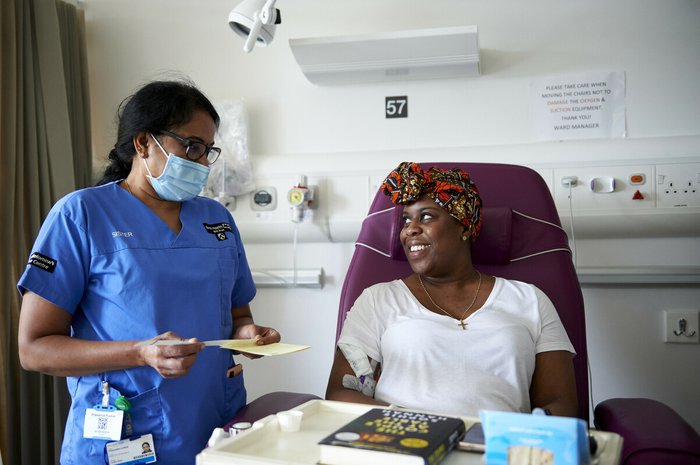Because we want to change the world for people affected by blood cancer
Over the last 60 years, our research has resulted in breakthroughs that have transformed treatments and saved many thousands of lives.

Thanks to breakthroughs funded by us and others, we are now at a point where a world in which no one dies as a result of blood cancer is within reach within the next generation.
But for all the progress, 15,000 people in the UK still die of blood cancer every year, and there are many more who are counted as “surviving” but still die before their time, either because of their cancer or from the effects of their treatment.
So everything we do in the next five years will be based on a simple belief – that every one of these deaths can ultimately be avoided.
Some lives could be saved now just by better use of existing treatments. Hundreds of deaths a year would be prevented if we could bring survival rates in the worst-performing areas up to those of the best-performing areas, and by ending the injustice that means people with blood cancer are more likely to die of their disease if they’re poor or from an ethnic minority or living in particular parts of the country.
We will establish, for the first time, the number of people with blood cancer who die younger than they would have done if they had not had blood cancer. And we will also set out how many of these deaths could be prevented through better use of already available treatments.
These estimates will form the basis of a national blood cancer plan. Developed with people affected by blood cancer and experts, this will become the blueprint for all our campaigning work, ensuring our campaigning and influencing work has the most lifesaving potential.
We will also ensure our support and information services reach many more people - we know we need to do much better, in particular, at reaching people affected by blood cancer from marginalised communities. Our information and services will also focus on the greatest need, and where possible focus directly on preventing deaths through things like enabling people to manage their infection risk and by supporting people to access clinical trials.
We believe our campaigning work and services have the potential to save a significant number of lives over the next five years. But our history has taught us that the single best way to beat blood cancer is through research to improve treatment. And the more of it we fund over the duration of the strategy, the more breakthroughs we will see, and the more lives we will save.
So over the next five years, we will increase our research investment from £5 million in 2021/22 to £15 million per year by 2027/28.
But maximising our research impact is not just about the amount of money we spend, and we will continue to focus on ensuring we are targeting it in the areas where it will have the biggest impact. We’re proud to have supported the careers of some of the world’s greatest cancer researchers, and we’ve repeatedly seen the lifesaving results that can happen when brilliant minds spend decades on a problem. So we want to encourage the talented new researchers of today to dedicate their careers to blood cancer, picking up the baton from the researchers we are funding now and carrying it the last leg of the journey to beat blood cancer.
We will also use our expertise to identify areas of research where there is the most potential to accelerate progress. Through funding calls in promising areas such as prevention and early diagnosis, we will ensure our spending on research is targeted towards the areas with the greatest lifesaving potential. And we will look beyond just the research we fund, using our position as the UK’s leading blood cancer charity to make the case to government, industry and other charities and funders that blood cancer research is worth investing in – we want the amount others in the UK are investing in it to significantly increase over the next five years.
We will firmly establish blood cancer as a well-known and understood type of cancer, as this will lead to improved symptom awareness, more political focus, and greater and better research investment, as we know that research is more effective when it focuses across blood cancer rather than on a specific type. Establishing blood cancer as one of the five common cancers will help us reach a much bigger proportion of the 4 million people affected by it, meaning we can give more of them access to potentially lifesaving services and can harness their voice as we can campaign for change.
Next... read how we're going to change ourselves from within.
Because if we want to change the world, we first need to change ourselves